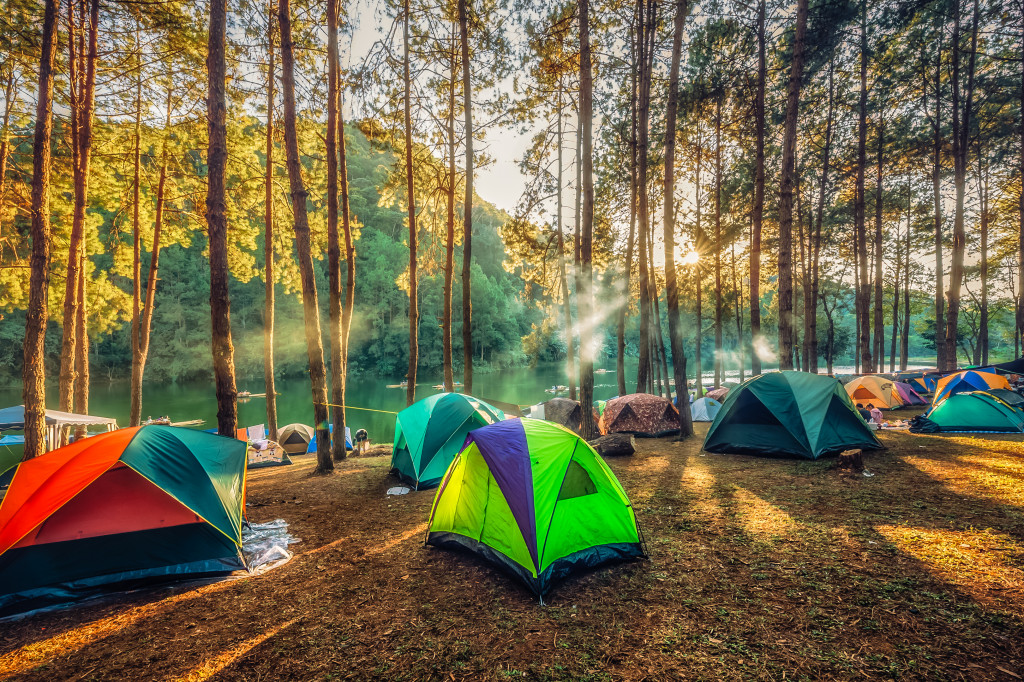
So you’ve prepared your SUV or camper or even fitted your Jeep with a new Jeep Wrangler drive shaft in anticipation of heading out and going camping for the weekend or longer. Whatever mode of transportation you plan to use, that’s just the tip of the iceberg. Apart from your vehicle, you need to prepare these essentials for your camping adventure. Here’s a short guide on how and what to prepare beforehand.
Know Your Group’s Needs
It’s important to know exactly who is going camping with you and what their health issues are. Knowing about the ailments, allergies, or health issues the people in your group have will help you prepare the needed medicine or be mindful about what food items you shouldn’t bring. For example, if one of your group is allergic to peanuts, don’t pack any peanut butter or anything with peanuts. If anyone coming along needs routine medication, make sure that they pack enough of their meds for the duration of the trip. Should anyone be wearing glasses or contacts, make sure that they pack a case for them along with a spare pair of glasses.
Have Navigation and Backup Communication Tools
You can navigate with GPS apps on your smartphone, but having a separate GPS device is still advisable. Why? Using a GPS device instead of your phone can help conserve on your phone’s battery power. Speaking of phone battery, you should pack car charging cables for your phone and a power bank. If you have a solar-powered battery charger, that’s even better.
Apart from the navigation device, bring along a CB radio. CB radios can be a very useful backup communication tool. You’ll likely be in cellular dead spots, and you should be able to call for help in case of any emergency. Cellphones won’t always be able to get a signal out there, but you can use a CB radio to call for help. When your phone is useless in your location, you’ll have a better chance of getting help from local deputies, truckers, or anyone else with CB radios near your location.
You may not always have cellphone service to check local news and weather reports online. Bring along a hand-crank radio to stay informed on news and weather updates. Packing a GPS device, a hand-crank radio, and a CB radio is a redundancy that you will want to have, especially in an emergency.
Agree on the Duration and Location of Your Stay

Planning ahead of the day of your camping trip lets you decide as a group where and for how long you’ll be staying. Doing this well ahead of the day of the trip can give you enough time to agree and prepare for where you’ll be staying, what type of gear, how much of it, and how much food you need to pack.
Book your lodging or campsite ahead of time to avoid getting bumped off by other holidaymakers. A few things can be more inconvenient than not booking shelter, such as a lodge or cabin, ahead and then finding out it’s occupied by other people and you didn’t pack a tent. Another bad wrinkle in your plans could be miscalculating the amount of food needed and running out halfway into your camping trip. Plan and iron out the details of your trip to avoid unpleasant surprises like these.
Pack Right and Light
Apart from the routine medications, pack a complete first aid kit. You can buy one at a store or put one together yourself with this guide. Be sure to check that the first aid kit has all the necessary items and that the packaging of the bandages isn’t broken so that they remain sterile. Replace any missing or used up items such as iodine, rubbing alcohol, and antiseptic wipes.
As for food, pack just enough to supply three meals and one snack per day per person. Bring enough potable water to supply each person in your group, with two liters of water per day. Note that most waste created by what you bring to the campsite can only be disposed of by packing it out.
Preparing for a camping trip can be easy if you plan ahead and iron out important details first. Decide on where to stay and always book the lodging ahead. Decide how long you’ll be camping, as this will determine how much food and water to bring. Don’t forget to let your family know where you’re going so that they don’t get worried. They can also alert the authorities in case you don’t return by the time your trip is supposed to end.







